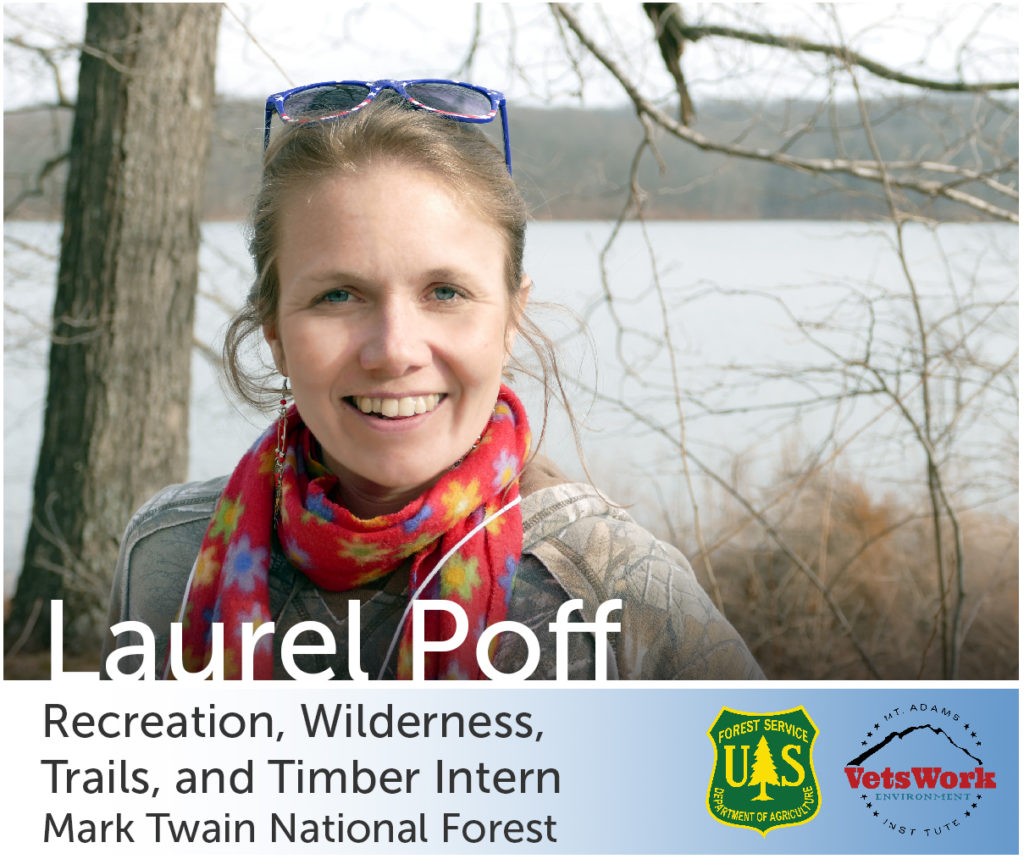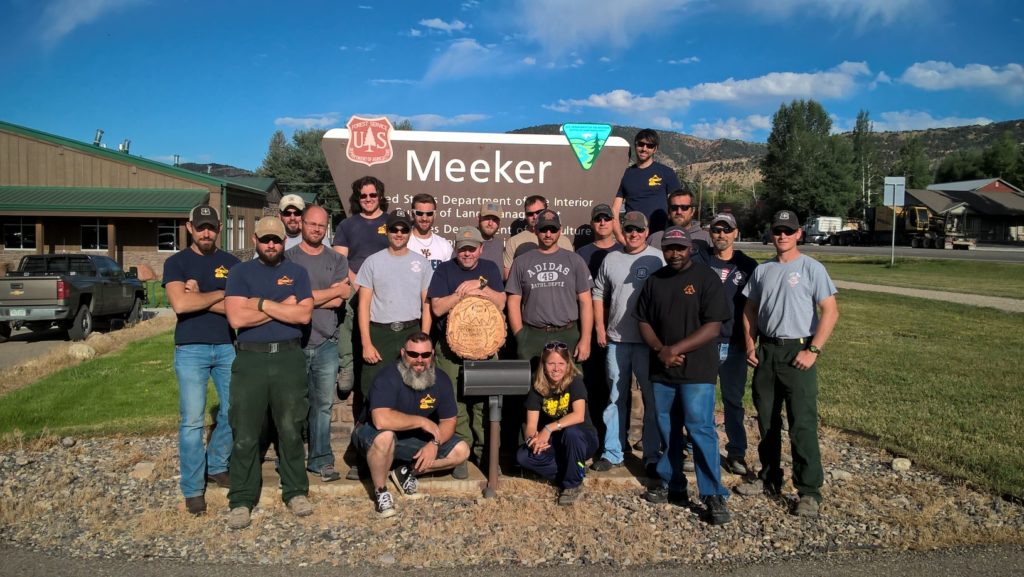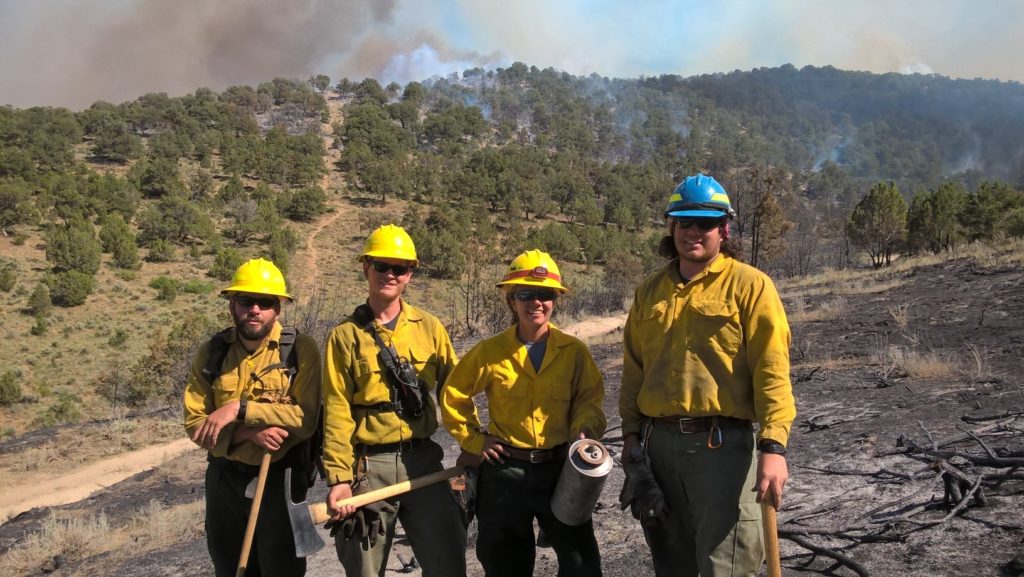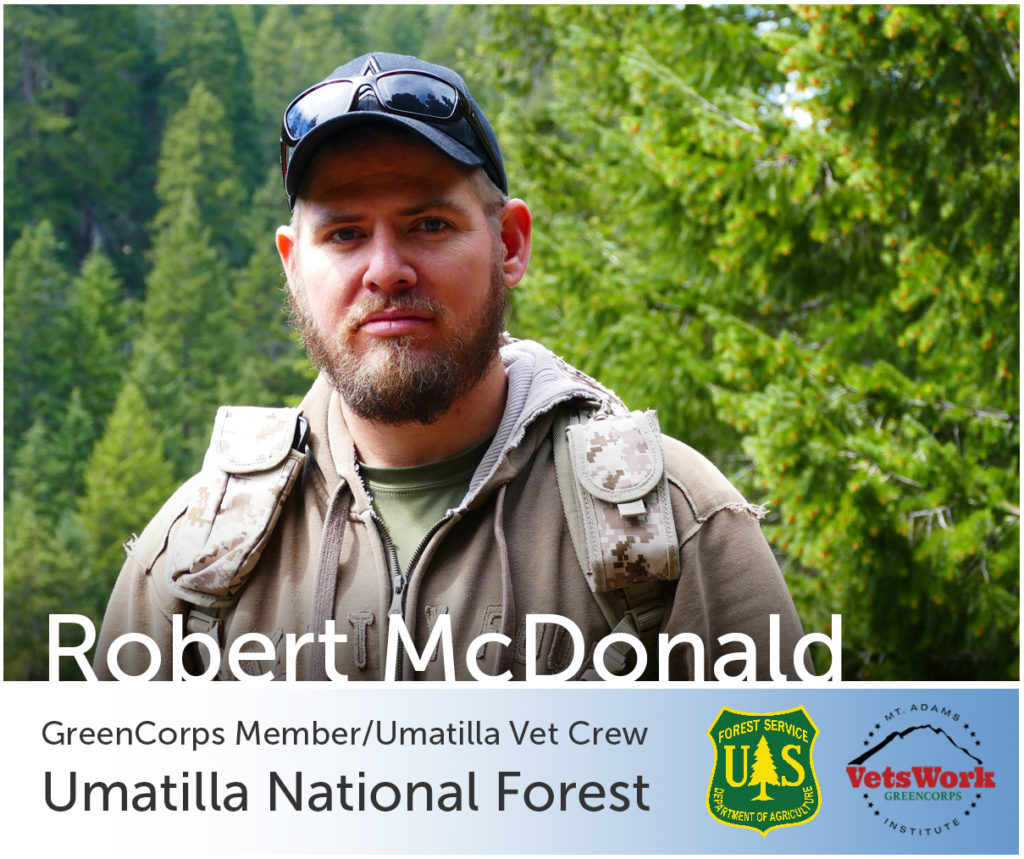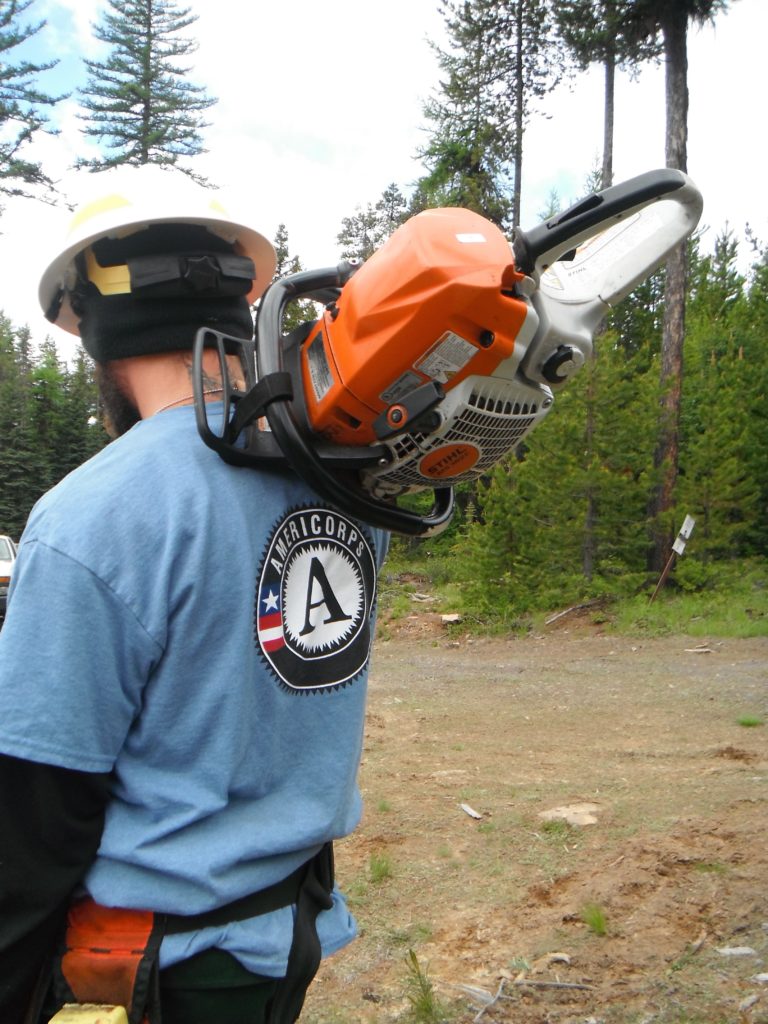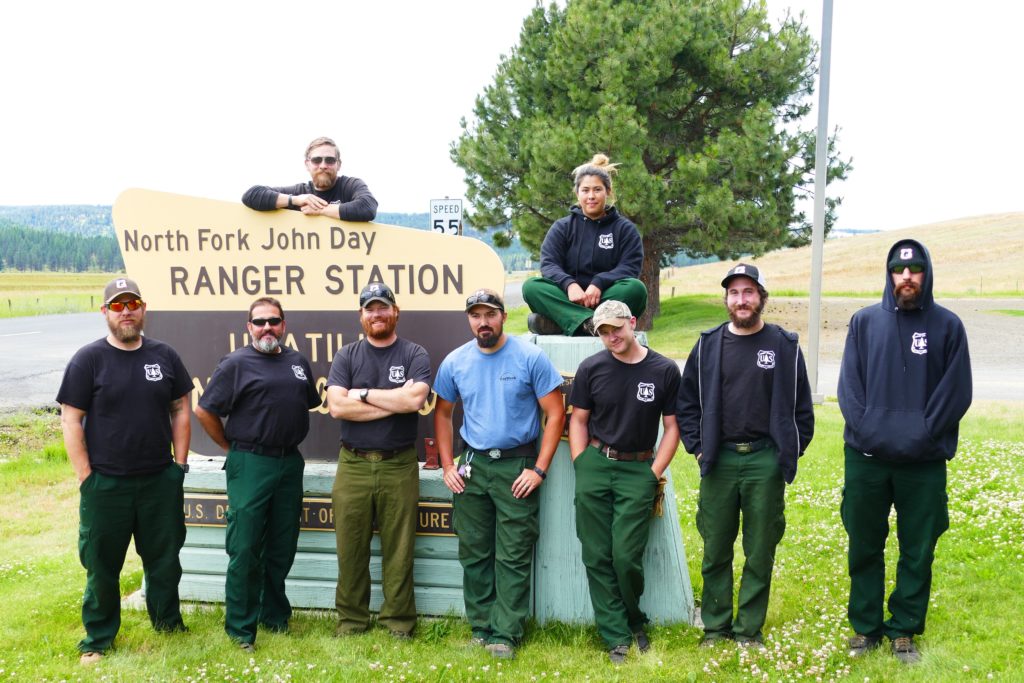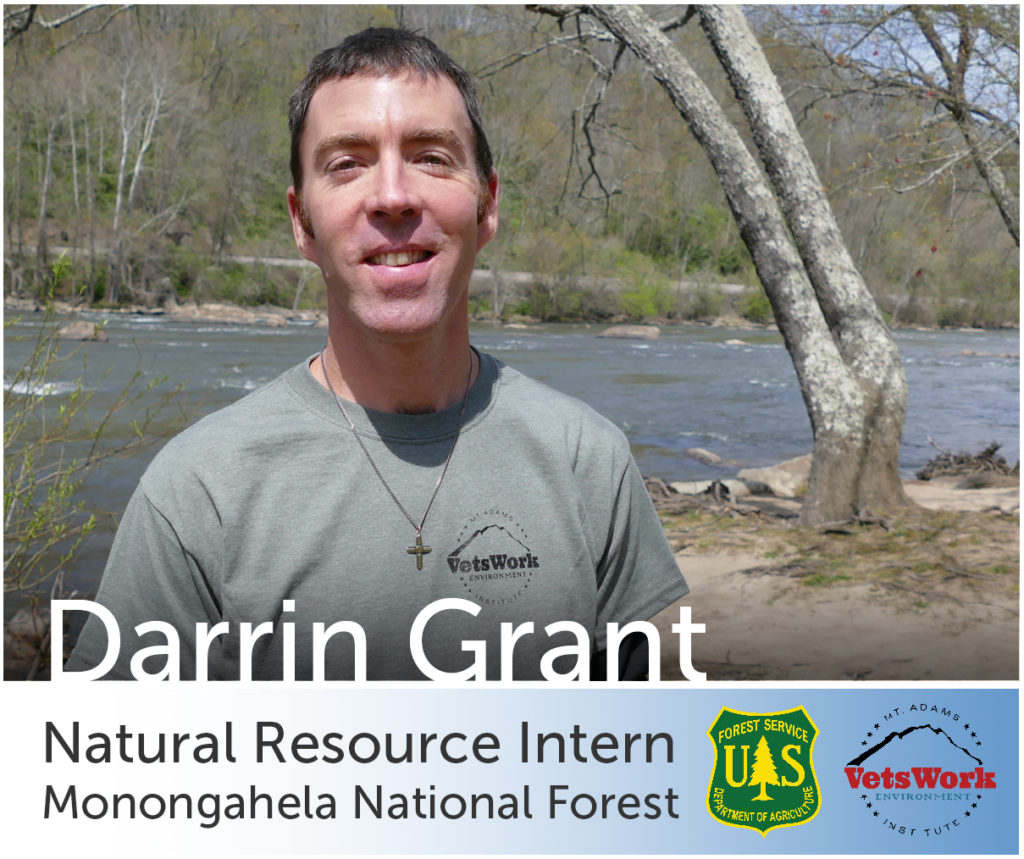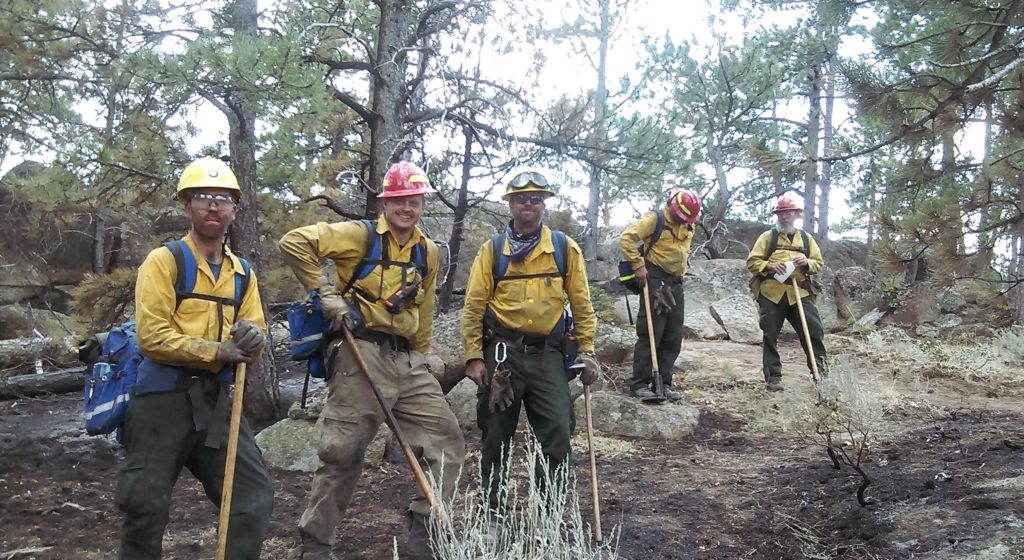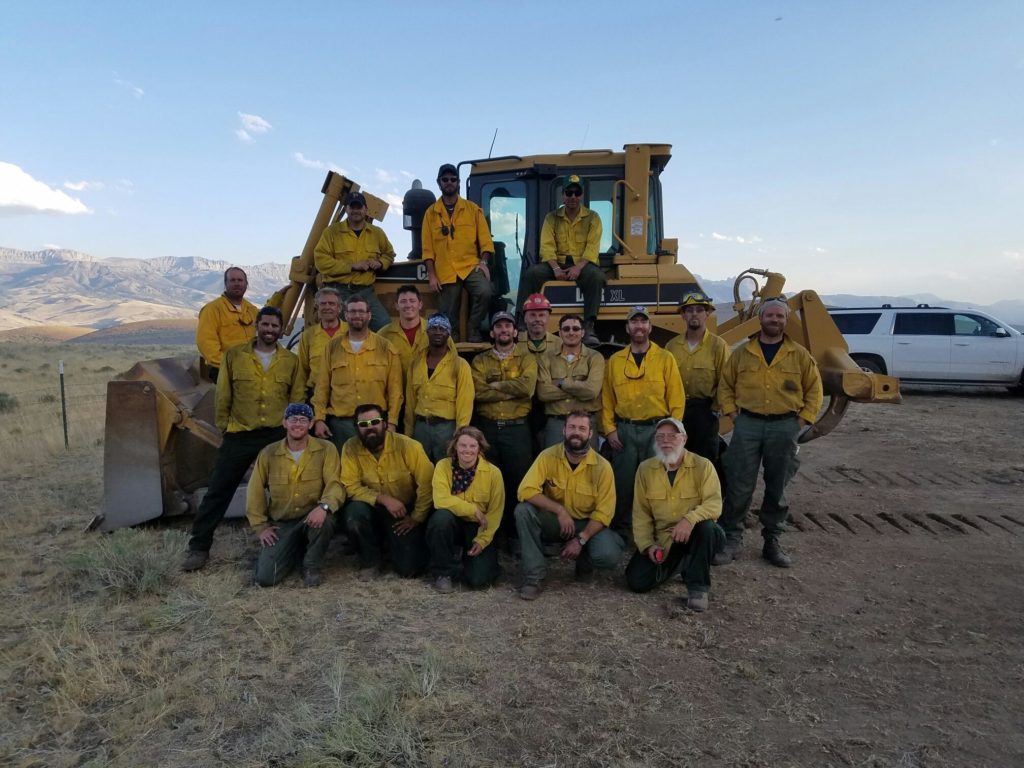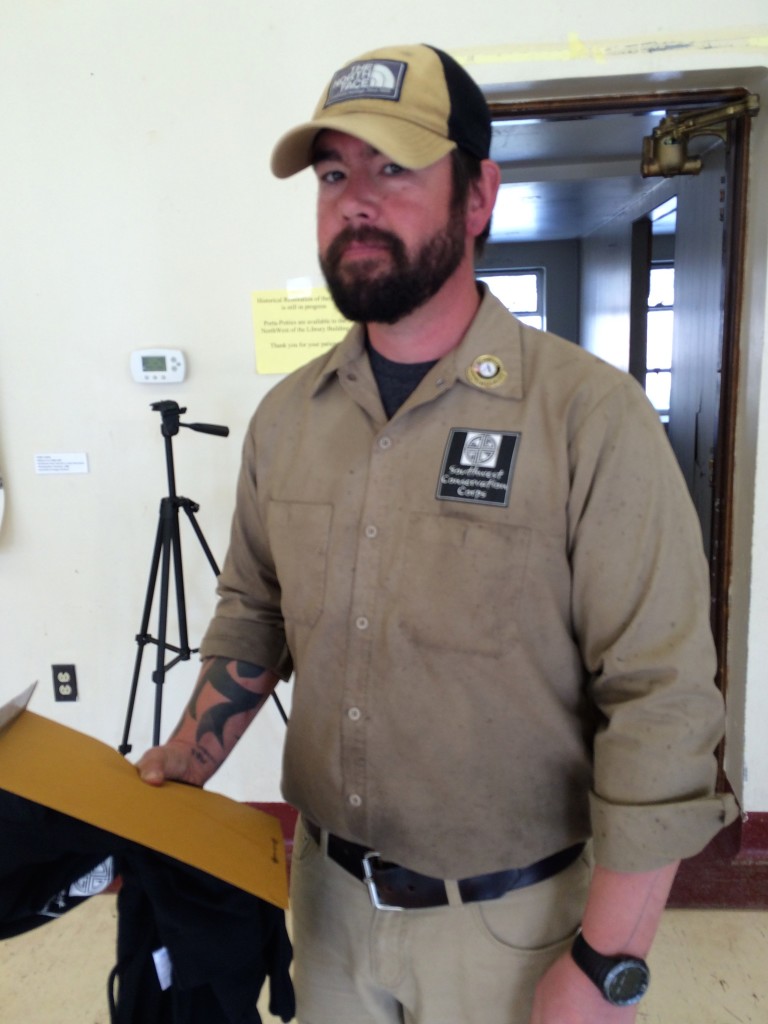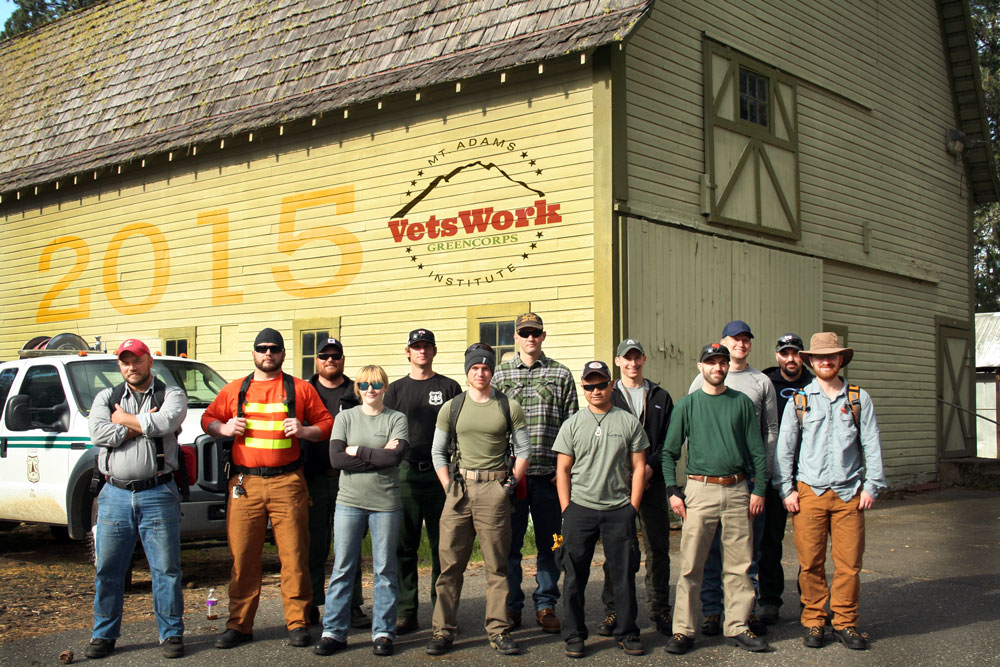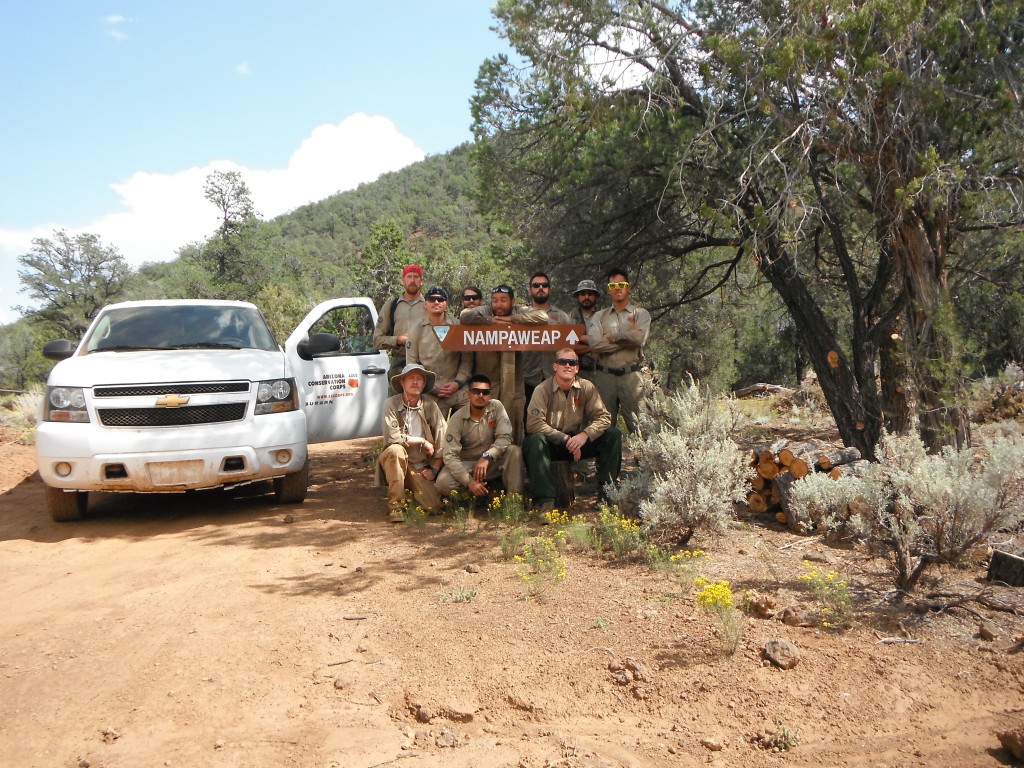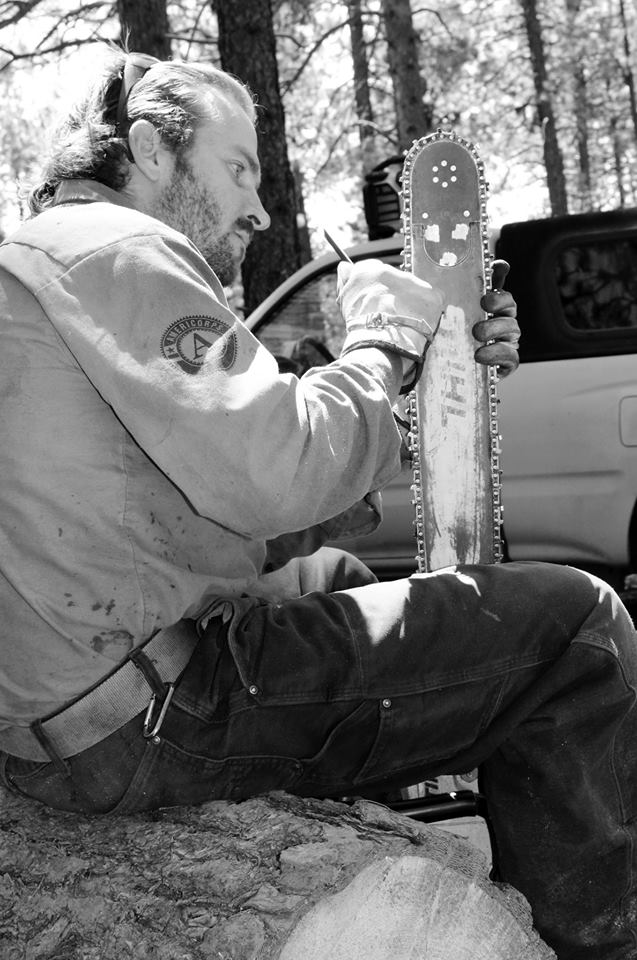Every year, many returning veterans continue their service to our country by participating in 21CSC programs. Several 21CSC member organizations operate programs specifically designed to engage former military service members in public lands stewardship. Throughout November, we will feature stories about some of these programs and the extraordinary people who serve in them.
From Mt. Adams Institute –
My family looked at me like I was crazy when I informed them last winter that I applied to a position in a rural southern Missouri town that neither my husband nor I had never been, in the middle of a forest, where we knew no one, for a significant cut in pay, in a job that I had limited formal experience in. Why would you want to do that? The ever-present question of confused looks on people’s faces when I explained that I was committing to a year of service with AmeriCorps, where I would be giving up a formal paycheck and benefits and relying on a “living allowance” of less-than-minimum-wage pay instead. As someone who served in the U.S. Air Force, I understood the value of service.
We had been living comfortably in Champaign, Illinois, plugged-in to the University of Illinois and only a 2-hour commute from bustling Chicago. Good job, great benefits, nice apartment, surrounded by intellectual, affluent people, and we agonized over it. Clock your 40-hour-weeks in a confined, dark, dingy building, in a space shared with other people and restricted by closed walls, performing the same routine task day-in-and-out, with little room for upward movement or cross training. Go home exhausted. Repeat the next day. This is the cycle that my husband and I sluggishly found ourselves sinking into. This was not the life that either of us had envisioned, nor dreamed of. That is when I stumbled upon VetsWork, an AmeriCorps program of the Mt. Adams Institute. Direct access to the outdoors, ability to learn and grow in a new skill set, public service, opportunity for continued federal employment, returning to my wilder roots of growing up in the outdoors of Alaska, almost everything about this program seemed attractive to me. And so I applied.
As I started my work on the Mark Twain National Forest, the stark contrast between the old way of life and the new showed up in more ways than simply a new job and an attempt to have greater access to the outdoors. This is much more of the life we were meant to live. Since I began service on the Mark Twain National Forest in March, it has been a whirlwind. Over my term of service, I have had opportunity to supervise and lead four AmeriCorps Trail Crews, design and implement several interpretive school programs within the local community, spear-head wilderness solitude monitoring surveys on the Eleven Point River and in the Irish Wilderness, assist with a new pollinator garden for local butterflies, work with community volunteers and key leaders to partner with Forest Service visions, assist our district Archeologist, our district Surveyor, our Forester, our Fuels Specialist, our Community Service Representative, our Manpower Development Specialist, our Recreation Technician, our GIS Specialist, and most recently, serve on a 3-week detail as a Forest Service Casual Hire fighting wildfires in Colorado.
And now, I have been hired on as a full-time, permanent Forestry Technician on the Ozark-St. Francis National Forest, the neighboring forest to the Mark Twain, just across the Missouri/Arkansas border. While Doniphan and the Mark Twain National Forest will be missed, I am incredibly blessed and grateful to be given this opportunity on the Ozark National Forest, although I had no idea that the opportunities would come so soon.
In essence, this writing is a true testimony to the power of the VetsWork program and how success really is possible for Interns who are dedicated to the program and its goals. Without the experience provided by the VetsWork Internship Program, I would not even qualify for the job I now hold today.
The Mt. Adams Institute VetsWork program absolutely is what members make of it. While the program does not guarantee a career, or even a job, if you jump in and take every chance to learn, grow, and develop new skills and experiences, you will achieve your goals for joining the program. Whether your intention is to secure a federal job or pursue higher education, VetsWork can get you there. This is a program of possibility.

